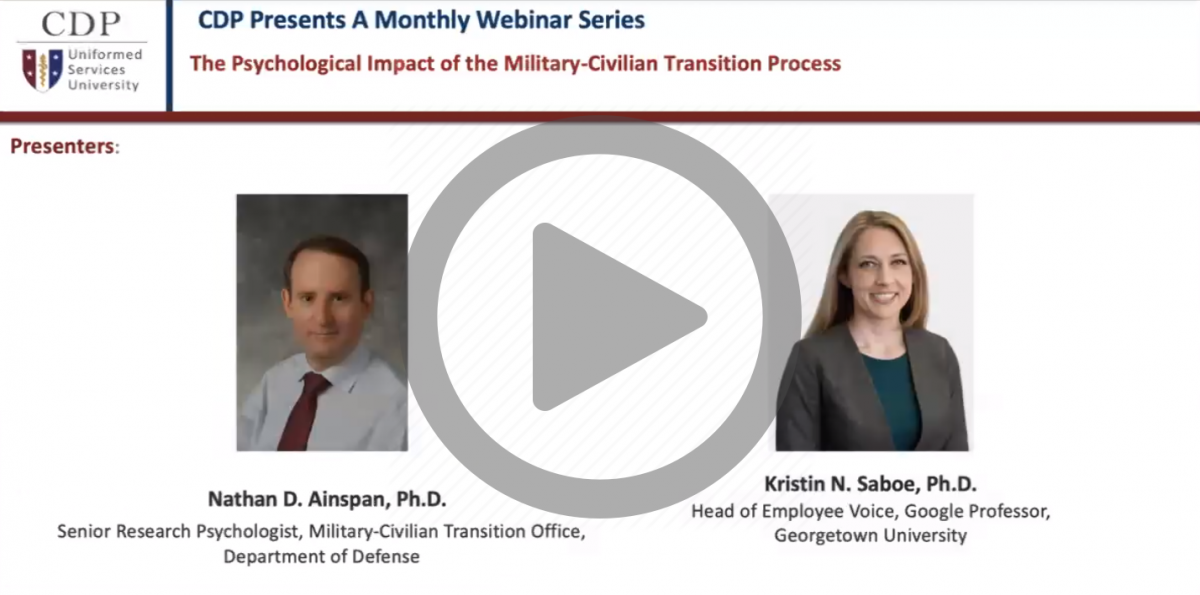This 90-minute webinar will introduce participants to the military-civilian transition process and how service members may experience the process psychologically. The session will begin with an overview of the policies, programs, and training that the members experience as they leave the military (including the Transition Assistance Program) and will then focus on how individuals may experience and respond to this process. Potentially negative clinical reactions such as Depression, hopelessness, or loss of identity will be presented. To address these concerns interventions, treatments, and resources will be provided for those working with this population.
The psychosocial benefits of employment and education for transitioning service members and veterans will be discussed. Participants will leave the session with and understanding of what their military patient, friend, or family member is experiencing or has experienced, knowledge of the programs, resources, and services that can help this population, and an appreciation for the critical psychosocial benefits that employment and education offers transitioning service members and veterans – along with tools and resources that can help this population successfully translate their skills and experiences to help them find enriching jobs or gain an education.
Learning Objectives:
Attendees will be able to:
- Explain the psychosocial benefits of employment and education to military clients.
- Integrate information about available resources, services, and programs [i.e., the Transition Assistance Program (TAP)] into successful transition strategies for military clients.

